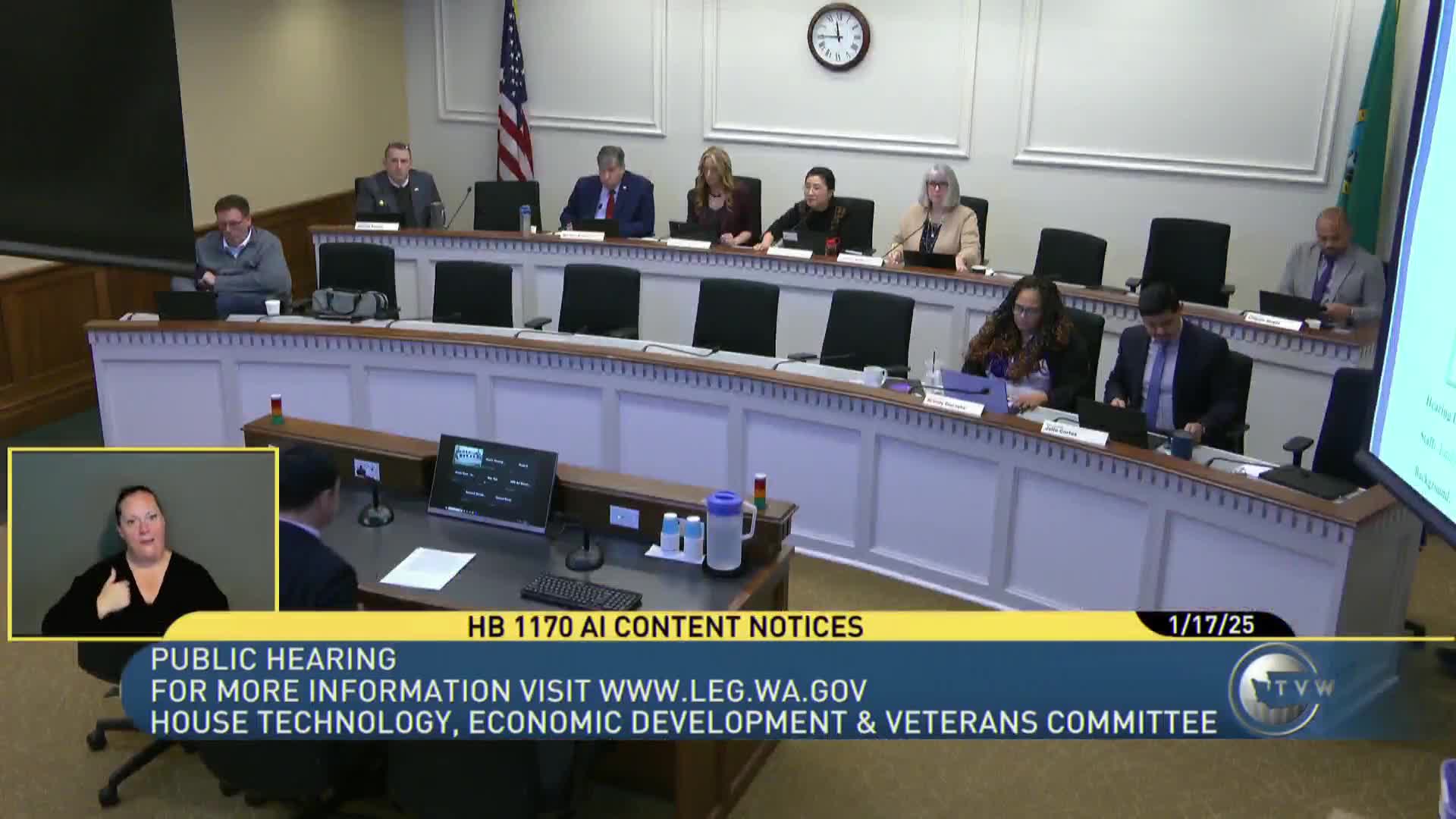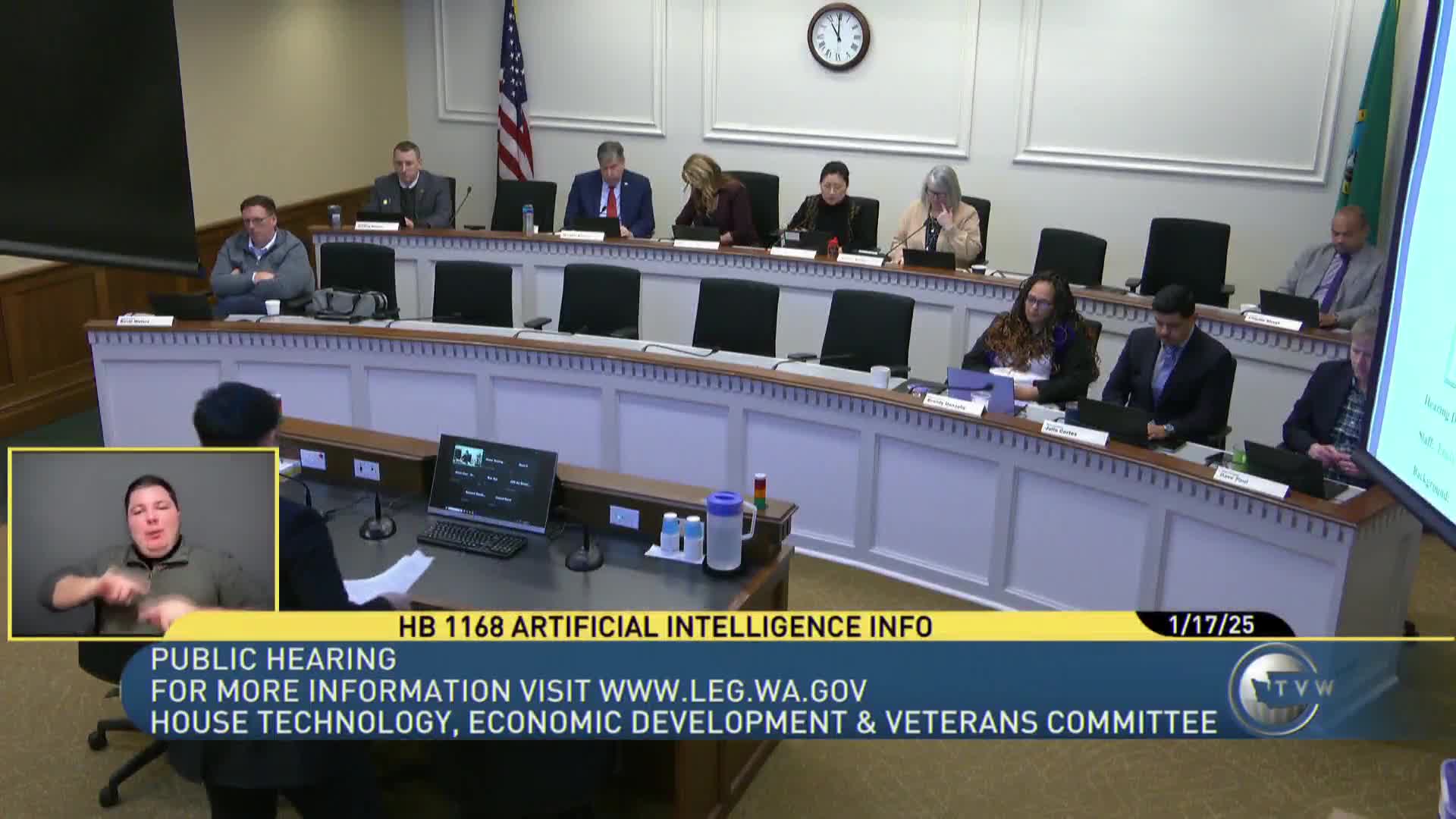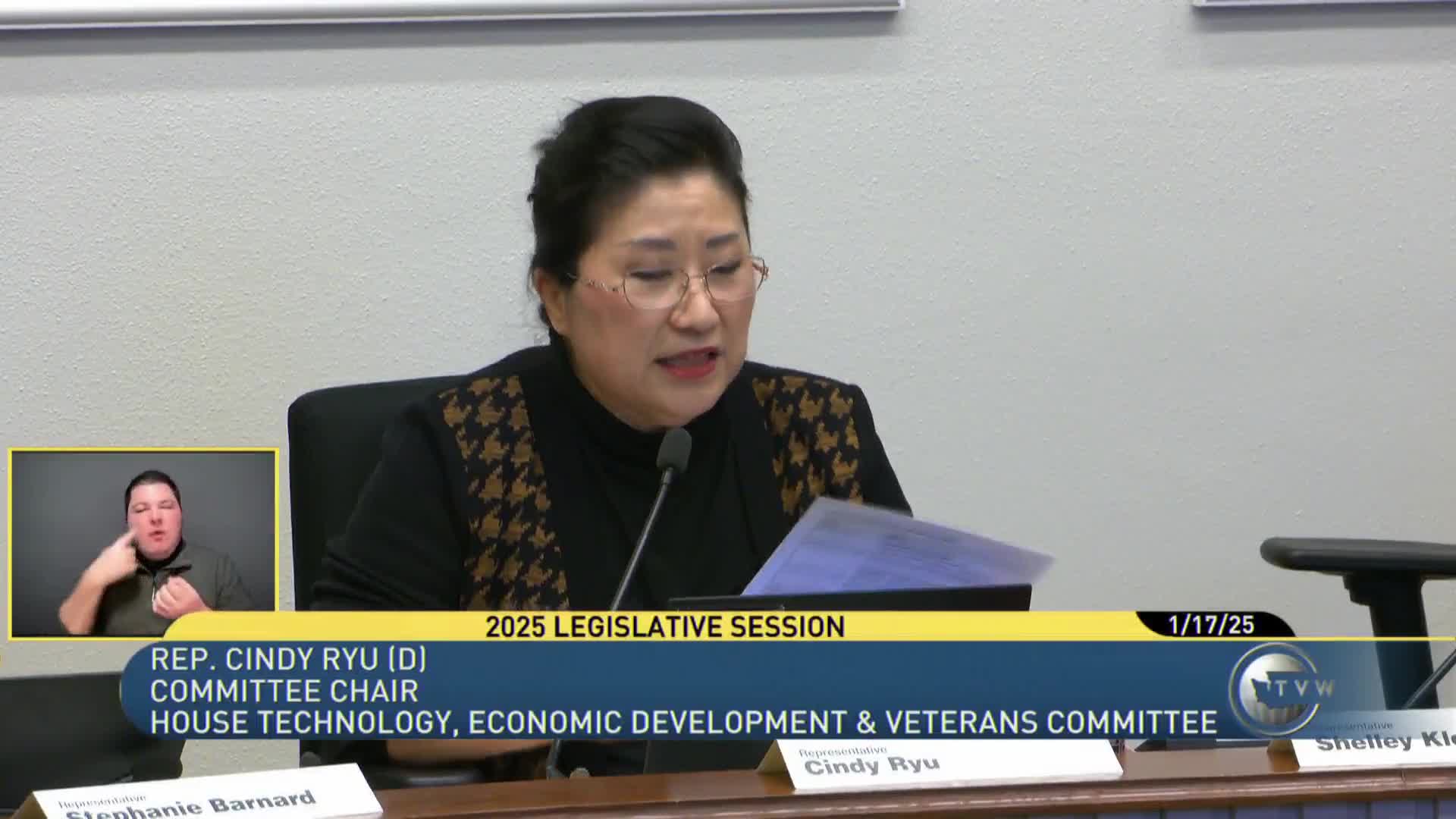Article not found
This article is no longer available. But don't worry—we've gathered other articles that discuss the same topic.

Committee considers bill that would require large AI providers to offer detection tools and label synthetic images, audio and video

Committee hears bill to require AI developers to post training‑data disclosures; enforcement, trade secrets and scope draw debate

